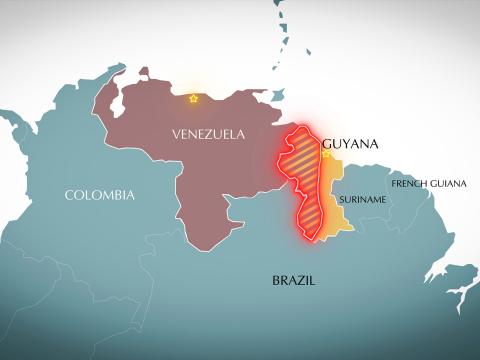China's Long March to Telecommunications Primacy Picks up the Pace
Third of a multipart series.
The seeds of future telecommunications are being planted in China. But the question remains, will they take root globally?
China’s cyber policy has both economic and political sides to it. On the economic side, flooding the global market with subsidized Chinese-made technologies offers the chance for major financial rewards as this equipment and its services become ubiquitous. On the political side, introducing Chinese standards to the Internet and cellular service will give the nation control over both services and data.
Many Western countries are beginning to push back against Chinese hegemony in information technology. These efforts range from closing the door domestically to Chinese companies seeking to build telecommunications infrastructure to encouraging innovation among non-Chinese companies. But ultimately, the best option may be to concede the current cellular generation and accelerate the development of its replacement.
Melissa Hathaway, president of Hathaway Global Strategies, notes that China published its international strategy for cyberspace years ago, in which it highlighted goals for cyberspace and telecommunications. These included the Belt and Road Initiative, the industries it wants to dominate in 2025 and its aims for playing a leading role in standards bodies. These goals were very transparent, Hathaway says, adding that the United States often pursues similar goals. The difference between the two countries is that China follows through and executes its strategies, she allows. China wants to be the lead provisioner of next-generation equipment, data services and applications that also meet more of their political and economic goals.
Hathaway views China’s global telecommunications thrust as being economic in goal, but with an eye toward political needs. Companies that specialize in telecommunications and surveillance are well-positioned to seize market control and become a household name, she offers. Once they attain that goal, they become a positive feedback loop for the political aims of their nation of origin.
China has made changing the rules in international standards bodies a priority for more than a decade, Hathaway notes. Again, this is not unusual for economically powerful countries and their industries establishing a market advantage, she adds. However, shaping standards to provide a broader access to data sets provides a different set of advantages through combining technologies.
But this also directly supports the desire to control information that flows through the Internet, especially if the free flow of information poses a core threat to the regime. Hathaway points out that Internet filtering is a key part of China’s actions in crises, such as in Hong Kong. China’s technologies, if dominant, could start filtering content according to the government’s wishes.
The seeds for this control already have been sown. In 2014, 2015 and 2017, China’s communist party issued public requirements for companies to collaborate in gathering intelligence. This applies to both organizations and individuals, Hathaway adds. The 2017 issuance added the requirement for organizations and citizens to assist Chinese security organs carrying out “the tasks of counter-espionage.” Refusal constitutes obstruction of state security, with appropriate punishment and penalties.
Foreign products and institutions operating in China must comply with these laws, and they are subject to inspection, data localization and mentor-protégé programs providing 49 percent to local providers. “There is a lot to be worried about regarding the law,” Hathaway states. “The law is what makes us question the technology and the integrity and transparency of the companies providing the services.”
The push for new standards for the Internet is as international as the network itself. Hathaway notes that some countries are making decisions on economic rather than political criteria, but some geopolitical concerns are creeping into the process. The United Kingdom, for example, announced it would review its decision to allow foreign technology firms such as Huawei to have some presence in its infrastructure. Faced with the possibility that Huawei might have to pull out of British networks by 2023, China responded by canceling a nuclear power plant deal and placing HSBC bank under review, bringing retaliatory diplomacy into play.
Europe analyzed its telecommunications systems last year in which it mapped and identified the increased security concerns over the availability and integrity of networks, the confidentiality and privacy of data flowing over them, and key innovations needed for 5G to enable European economic competitiveness, Hathaway relates. In 2020, the European Union published its 5G Toolbox with cybersecurity requirements, noting that each state must take appropriate security measures to manage the risk posed by the advanced mobile networks.
This includes each operator having a multivendor strategy, Hathaway continues. The diversity of suppliers is an issue, she allows, saying that the only major companies positioned for that end-to-end role are Ericsson, Nokia and Huawei.
The Australian Signals Directorate conducted a study on how a foreign adversary could attack a 5G network, Hathaway notes. The study noted that a state-directed company, such as Huawei with China, could be coerced by its government to insert a complex code during a system update. The software-defined network might then fall under the control of that government and its intelligence service, and that control would not be detected. Ultimately, when Australia banned Huawei from taking over its telecommunications, China again resorted to retaliatory diplomacy by ending purchases of Australian food products.
Japan also banned Huawei, but it took a different approach by providing tax incentives to spur innovation at home. The country also signed a bilateral agreement with the United States to work together on 5G development.
“When you do a tour around the world of our allies, it appears some of the decisions they are making underscore the concerns,” she says.
“The reason that all of our democracies in all of our countries are talking about this is that we’re dangerously close to not having options, and having a Chinese telecommunication backbone of our digital economy for the next decade.”
The United States is late to the game in terms of competing with Huawei in 5G, Hathaway says. It is a 10-year issue that must be addressed with mitigating and business incentives to spawn greater competition. But 5G networks are being fielded today through the next five years, and new players are not likely to appear during that time. Efforts are underway to have the Open Radio Access network standard versus the proprietary standard to allow greater innovation of applications on the edge—in effect, make it more of an application programming interface (API) that opens up the marketplace, she observes.
But the key may lie in the future. Conceding 5G, the United States should accelerate the development, and leadership, of the 6G standard, Hathaway says. “If we can accelerate that and not have to wait a decade for it, then perhaps you can limit the risk by providing a new technology in a shorter period of time while still in a minimal rollout of 5G,” she suggests.
“That might be a smarter path.”
Next: China and the uncertainty of the Internet.





Comments